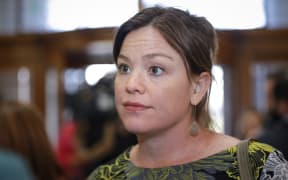Parents and disability advocates are disappointed the government's overhaul of funded family care doesn't fix some of the most critical problems in the system.

The system needs to be easier for disabled people and their families to navigate, advocates say. Photo: 123RF
The changes have been in the works for some time and more details about when they will come into effect were announced yesterday.
From mid-April, family carers will be paid more and carer eligibility is being expanded to partners and younger family members.
But the assessment process which calculates how many hours they are paid for remains untouched.
Lawyer Paul Dale, QC, has represented a number of parents seeking a fairer deal for the work they do caring for their disabled children.
While the reforms are a step in the right direction, he said some families would be no better off if changes weren't made to the assessment process.
"They work through a chart that has things like the number of hours, or minutes, spent going to the bathroom, toileting, hygiene, meal preparation and feeding and so forth," he said.
In a case Mr Dale is working on at the moment, that assessment has calculated a family carer would be paid for 15 hours work a week.
"I've met the particular boy involved and the notion that he could could be cared for for 15 hours in a week is just absurd."
While some changes are better than no changes, families caring for high-needs disabled loved ones are doing it tough, Dale said.
"Those that are blessed with a healthy family don't understand I think just how onerous it is, but it's tough, it really is not something that should be measured as a matter of minutes and hours and they kind of artificial approach that's been adopted."
Peter Humphreys cares for his 31-year-old daughter full-time and he said a tickbox exercise really doesn't represent the amount of work many carers do.
He said the assessment process can also throw up inconsistencies.
"[There is] such a variation in assessments throughout the country, there doesn't seem to be any uniform assessment system or allocation system.
Disability Rights Commissioner Paula Tesoriero said families of disabled people complain that the assessment process was too complex.
She said it needed to be much easier for disabled people and their families to navigate.
But Tesoriero acknowledged the Government's changes to pay and carer eligibility were a positive step, but that it would be better if these could be implemented much sooner.
"Families, disabled people and advocates have been pushing for these changes for a number of years, there has been work going on steadily in the last couple of years to get to this point."
Tesoriero hopes the necessary law changes will be pushed through before the end of this parliamentary term.






